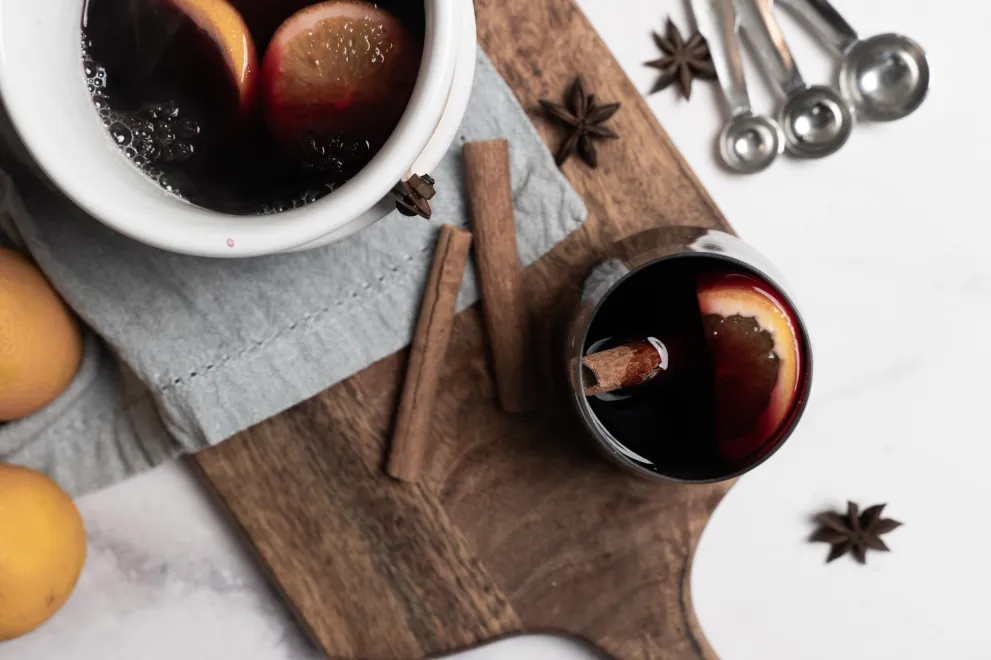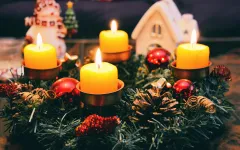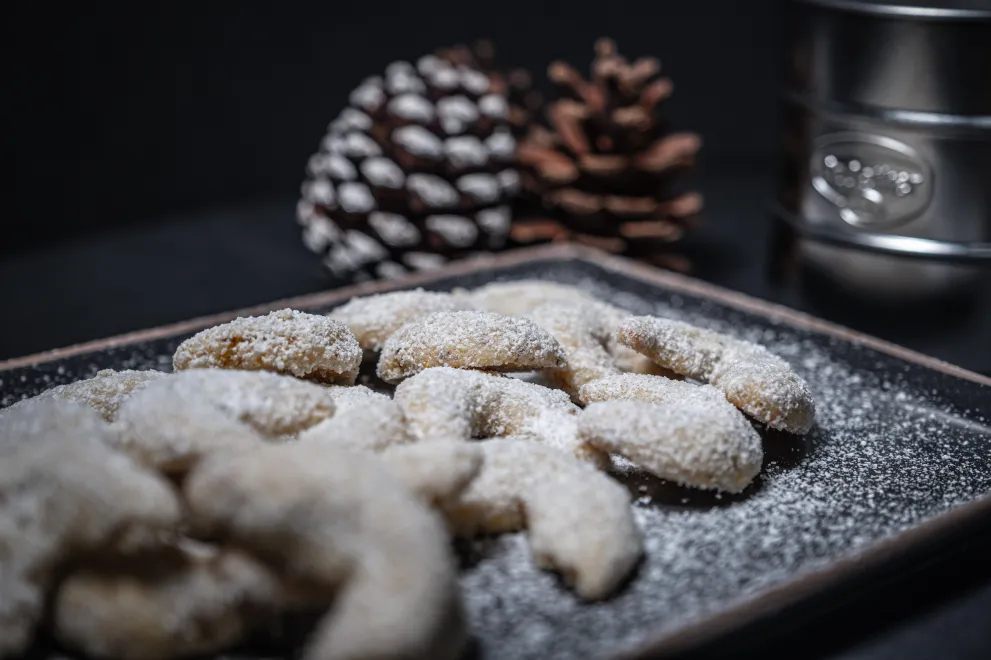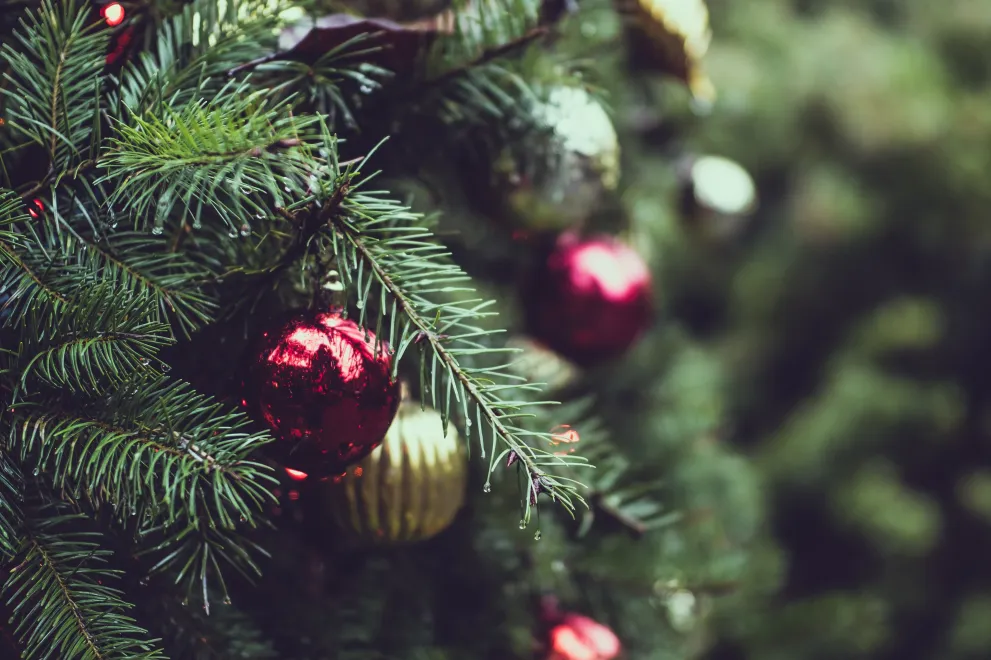
- 1 bottle of red wine (dry) (non-alcoholic version: grape juice)
- 1 large organic orange cut into slices, or 250 ml orange juice
- Spices: Cinnamon sticks, cloves, cardamom, star anise (alternatively, there are ready-made spice mixtures)
- Sweeten to taste with sugar, honey or similar.
Put all ingredients in a pot and heat, but do not boil; leave to infuse for at least 15 minutes; then serve hot.






